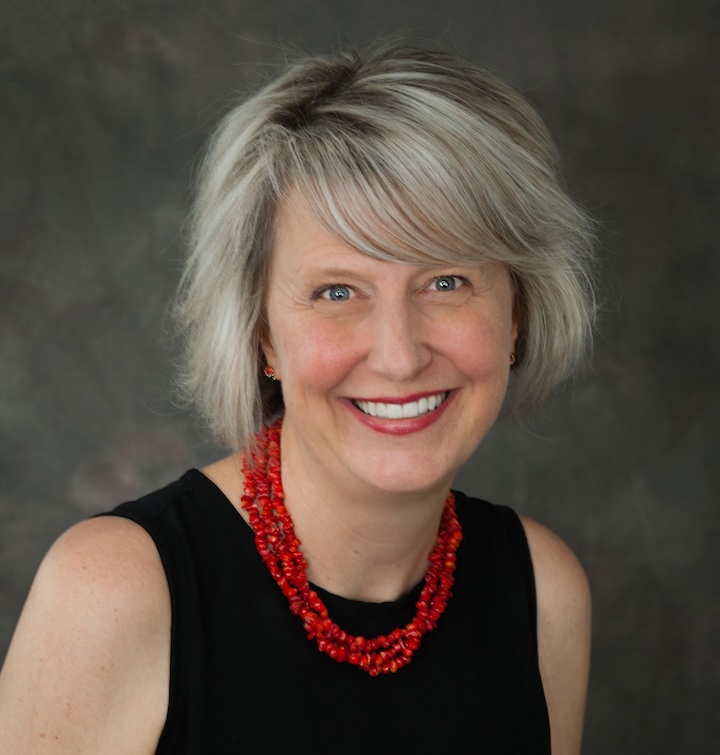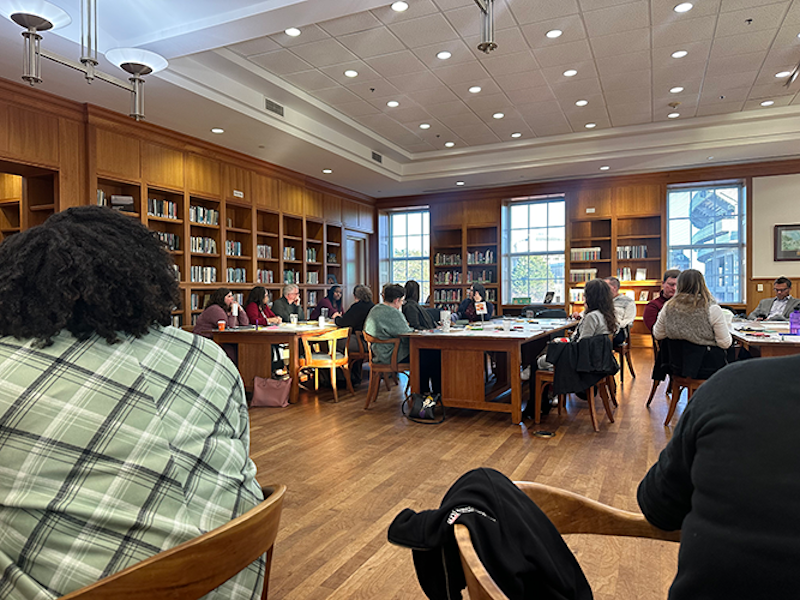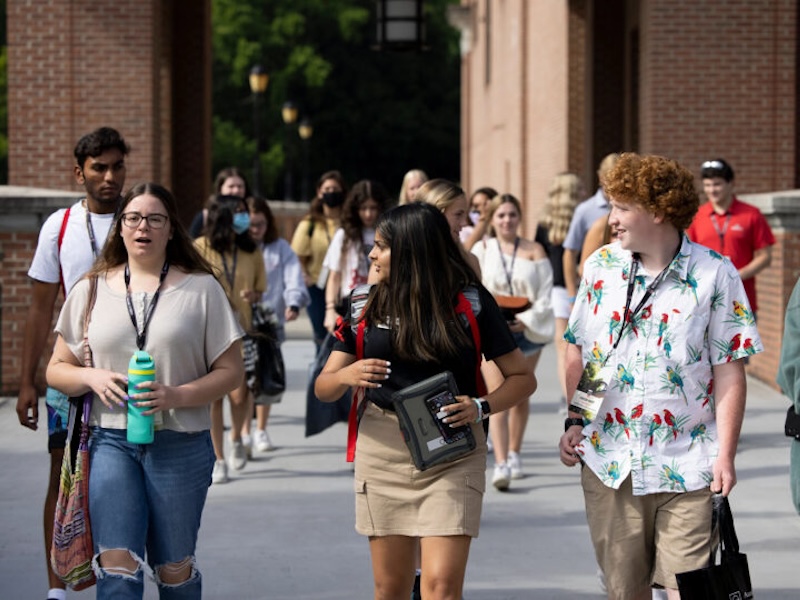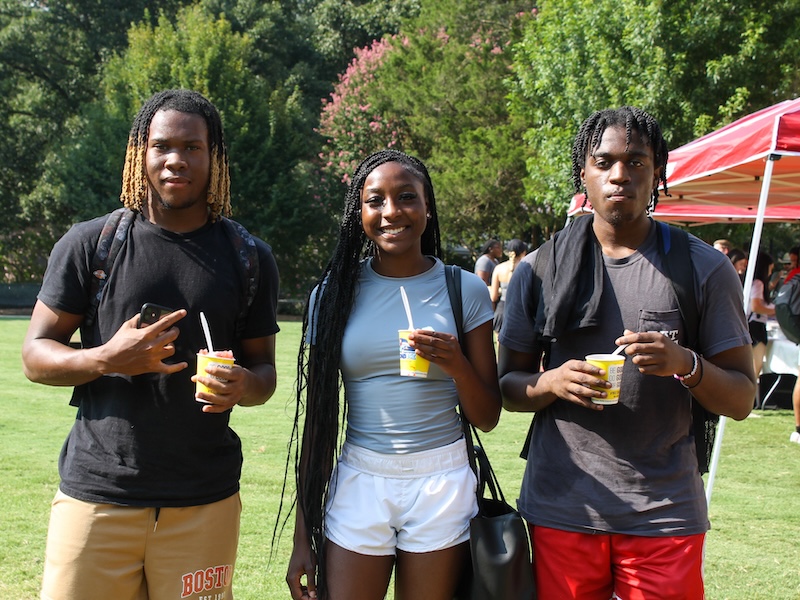Dr. Wendy Biddle
Lecturer

Wendy loves working with UGA students, and has done so in a number of ways since coming to Athens as an undergrad student. In addition to working with the Division of Academic Enhancement in various capacities for more than a decade, she has taught literature, mythology, and language courses in the Classics department, as well as multicultural gifted education for Educational Psychology.
At the Division of Academic Enhancement, Wendy teaches various student success courses. Committed to learning about sharing research teaching the practices and attitudes that craft lives ready to receive more joy, she teaches multiple courses applying the readings from positive psychology to our actual lives.
In her free time, she enjoys traveling, hiking, writing, reading, tennis, and spending time with friends and her husband, and family (both human and furry).
Education
- Ph.D. in Educational Psychology — University of Georgia
- M.A. in Latin — University of Georgia
- B.A. in Classical Culture — University of Georgia
- B.A. in Latin — University of Georgia
Awards & Honors
Division of Academic Enhancement Innovative Teaching Award (2018)
Areas of Expertise
As a UGA well-being Champion, Dr. Biddle regularly engages with a team of other campus professionals committed to creating a culture focused on serving holistic wellness. Related to this effort, she teaches multiple courses applying the readings from positive psychology to our actual lives. In these courses, students learn and practice research teaching the practices and attitudes that craft lives ready to receive more joy.
Teaching Philosophy
Ultimately, I believe the fundamental goal of teaching is to activate students natural love of learning. Even more significant for many is the power of an educational experience to impact the capacity for hope a person possesses when thinking about the future (Dixon & Scalcucci, 2021). While it is true that humans are hard-wired to learn, it is also true that students arrive in classrooms with beliefs about learning and themselves as learners, the role of the instructor, and the learning environment. Naturally, these beliefs are formed by previous experiences. Often, these beliefs hold the key to how much a student not only enjoys a class, but also to what extent that student conceptualizes his or her own potential. The degree to which a young person is able to conceptualize his or her success is remarkably influential to what degree the student is able to actualize his or her success. Studies into neuroplasticity have proven that human intelligence can increase by meeting challenges with a positive attitude (Dweck, 2014). Teachers possess opportunities to provide those challenges and the necessary skills and encouragement to meet them. In some cases, an individual unfamiliar with the skills and attitudes necessary to meet challenging expectations who not only meets that challenge but also gains the skills to do likewise when facing future challenges grows an individual’s capacity to think positively about her future (Dixson, 2019).
The multiplicity of human capacities and learning styles opens an exciting spectrum of opportunities for the student to harness his or her own unique potential. At the same time, this wide spectrum poses a challenge to both the student and the instructor. The instructor must have the skills and mental flexibility to differentiate her curriculum to the needs of students, in order for the student to connect to the material. Likewise, students must be willing to explore and discover the ways in which they are best able to learn. It is often the case that what inspires me, the teacher, will not necessarily be the same as what inspires my students. It is also true that our students seek lifelong learning skills that will stand the test of time after they enter the workforce (Saavedra & Opfer, 2012). My job is to learn about the students as individuals, in order to translate my love of learning into a language that appeals to my students. I work to help the students become self-regulated, self-directed learners through grounding research-backed skills in specific content chosen to engage their interest while developing depth to their knowledge.
As a part of learning goals in the Joy and Achievement and the Learning for Success sections I lead, I share this information directly with the students. We work together to modify class projects in order that they balance providing enough structure to lead the students’ learning while also providing freedom for each student to make it relevant to his or her specific motivations. In recent years, I have participated in a partnership with the Destination Dawgs program. In this program, students with developmental disabilities audit a class with typical University of Georgia students. During the course of this experience, I was privileged to see that even students with Downs’ syndrome embraced this concept. With help from their tutors and facilitators, I was thrilled to watch them apply it to their own situations. Working with these students was a refreshing reminder that all humans can thrive while learning, and all can appreciate the essential qualities that drive my own love for teaching.
One reason students are able to connect concepts like the basic tenets of neuroplasticity to their own experiences easily is because I consistently strive to use examples based on what they already know. At the same time, I guide them to see their pasts through the lens that they have already succeeded as a result of their efforts, and that their future success awaits. I work with them to apply Dweck’s research into mindset by providing ample feedback in a timely manner, as well as a fair number opportunities to regain points lost to lack of understanding or effort.
So often, teachers set the “tone” for the classroom and the learning which takes place therein. Teachers who are enthusiastic and positive about a subject are and the students’ abilities in that area often find that their passion flows into their students. Likewise, teachers who treat their students respectfully generally receive a similar level of respect from their students. My job, as a teacher, is to model enthusiasm for the content and mutual respect, while imparting knowledge. I have chosen to teach because I enjoy it, and I enjoy being with young people.
I have found myself in the fortunate position of being challenged to create a number of different courses during my career. As a result of these challenges, I have gained the confidence that there are certain qualities which undergird every course we teach, regardless of the content area. The love of learning should be crystal clear to students by the end of a term, and it honestly does not matter what we are teaching. By means of this joy, I am able to transfer not only the knowledge to the students, but also a more general love of discovery. It is this realization, that scholarship is alive and fun, which I believe best serves my students, not only in my classes, but after they leave the classroom.
Inclusive Teaching Statement
I am committed to creating, managing, and nurturing an inclusive environment. I commit to mindfully stewarding the resources and influence granted to me in a manner that will respect and honor the value of each individual’s unique worth. Each individual possesses simultaneous membership in many different communities (e.g. spiritual, ethnic, gender identity, sexual orientation, country of origin,) and inhabits multiple roles (e.g. daughter, son, friend, student, worker). While instructional models of the past have not always equitably valued the diversity we see in our world, I will include diverse perspectives when discussing the past. I will continue to work on co-creating a more inclusive future with you. I encourage you to likewise share your thoughts and perspectives in order that we can continue to grow together.




